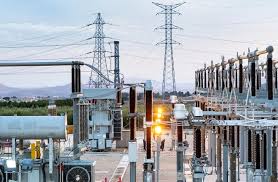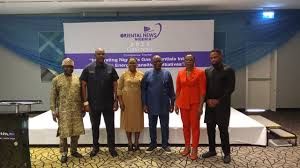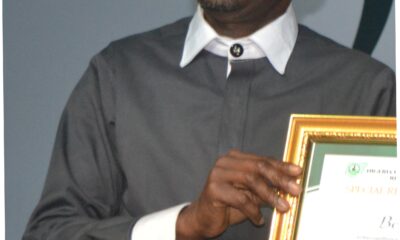Business
Seafarers And Prevention Of Accidents
Safety at sea, over the years has been one major concern for maritime operators and stakeholders, both locally and internationally, and various efforts have been made by various bodies and groups, including the world’s maritime regulatory body, the International Maritime Organisation (IMO) on how to curb the problem.
IMO objectives have centred on how to achieve and maintain safety, security and efficient shipping on clear oceans, and in its efforts to address safety problems have for a long time kept on improving ships construction and equipment standard through its continuous amendment of safety of lives at sea (SOLAS) convention.
The continuous rise on-board ships accidents, inspite of the SOLAS amendment calls for comprehensive casualty investigation so as to find out the underlying cause (s) of accidents.
Reports of careful analysis of casualty investigation have revealed that about 80 per cent of accidents were caused by human error, despite the shift of focus from SOLAS Seafarers Training and Competence Work (STCW).
In spite of the wide acceptances of the STCW, the shipping industry, various bodies and governments have expressed growing dissatisfaction as to the effectiveness and implementation of the STCW convention.
However, the question now is: why do human error accident onboard ships still take place ? Continuous occurrence of such accidents has brought about mixed feelings as to the effectiveness of the 1995 STCW consention, and the role of stakeholders in the implementation of the STCW standards.
As professionals in the maritime sector, seafarers are basically competent by training as carrier men/women in the sea and shipping operations, and whatever incompetence or carefree attitude they display on board vessel might result to accident on board, and hence the need for stakeholders particularly those that will have to do with maritime administration, education, training, international regulatory body, shipping companies and seafarers themselves to rise up to the challenge in enforcing proper STCW convention.
Maritime administration like the NIMASA in Nigeria, are responsible for ensuring compliance with the implementation of the convention and other maritime codes by approving related education and training, ensuring that the duties, task responsibilities of seafarers conform to the certificate issued.
They are equally to ensure that quality standards of seafarers competence are continuously monitored, certified, endorsed, and revalidated. It is also required that they accredit maritime academies and institutions, and also submit progress reports to the world’s maritime governing body, the IMO, with respect to the implementation of the convention in their respective countries.
Invariably, the NIMASA which is the apex maritime regulatory body in Nigeria has shown a level of competence in the regulation and management of the Nigerian territorial water in ensuring safety, and this it does in collaboration with other agencies that have stake in the maritime sector.
That is why the efforts made by NIMASA in the rescue operations of a Sao Tome vessel “MV Alsalam” in 2009 with 160 passengers and 12 crew members on board was very commendable.
NIMASA demonstrated its commitment to ensuring safe navigation on Nigerian territorial waters as it successfully intervened in a rescue mission involving a Sao Tome flagged vessel which was on voyage from Gabon to Cotonou.
The vessel “MV Alsalam”, a small general cargo ship built for coastal trading, developed engine problems of Nigerian waters and drifted into the high sea for nine consecutive days with over 160 passengers on board, before calling for help; as was reported.
Regional Maritime Rescue Coordination Centre (RMCC) at the NIMASA Resource Development Centre in Lagos, shortly after receiving the distress signal, relayed the distress signals to all vessels in the region in order to locate and rescue the stranded vessel, and this paid off when the vessel was located and juided to Calabar break waters towed by another vessel.
NIMASA officials provide first aid services to very weak passengers and food as well as other assistance for the passengers to go back home, while the vessel was detained in Calabar for port state inspection to determine her compliance with the IMO regulation for Deep-Sea Sailing and Trading.
Investigations also revealed that the same MV SALAM was also rescued barely six months before the second incident, off the coast of Lagos waters, and if the regulatory and enforcement agency for that country had done its work from onset, probably such rescue missions would have been averted.
Training institutions play crucial role in developing seafarers’ competence. That is why the scope of training provided must not be limited to the convention, but should take into consideration the national challenges.
Such training institutions will in order to fulfil the need of International Shipping, quality seafarers, develop and train staff in maritime education and training in line with the IMO model courses and the global Maritime standards.
They are to focus on competence-based training systems which will ensure a complete utilisation of necessary educational equipment and updates.
Shipping companies on their part are expected to compensate for laxity in enforcement of convention provision by administration, and implementation of the necessary standard regarding emergencies and report procedures between boardship and the company.
In addition, shipping companies are also expected to assist in the training of staff and sea service and as well monitor the implementation of procedures for changing crews to ensure that sufficient time is allowed for those new to the ship to have adequate opportunity to familarise themselves with the ship, thereby providing the enabling environment for seafarers to perform well.
Seafarers, on their part, are required to acquire and demonstrate competence while on board, keeping pace with progress through upgrading and updating their skills and knowledge in the areas relevant to their duties and responsibities on board.
The International Maritime Organisation (IMO) in order to keep track with implementation of convention and other instruments relevant to shipping safety is also expected to lay emphasis on human element issues with other member states.
IMO is also expected, encourage technical co-operation between her members states and other organisations to give effect to the convention, recognise advice and assistance that may and will be provided by experts in maritime resources and training.
Although there could be challenges in the implementation of expectation of various stakeholders in ensuring the competence and training seafarers, especially the human error, but since the STCW has been globally accepted, its full compliance can guarantee safety on board ship, to some great extent, inspite of the human error.
Corlins Walter
Business
Abia Takes Over Electricity Supply In 8 LGAs

Business
‘Gas Shortages, Infrastructure Deficiency, Bane Of Power Sector Growth’

Business
NUPRC Blames Out Service Trunk Lines On Vandalism … As Rivers NUJ Promises Development Journalism

-

 Business3 days ago
Business3 days agoNUPRC Blames Out Service Trunk Lines On Vandalism … As Rivers NUJ Promises Development Journalism
-

 Maritime3 days ago
Maritime3 days agoNnaji Bemoans Darkness In Nigeria In Plenty Gas Reserves
-

 News3 days ago
News3 days agoRivers NUJ Constitutes Editorial Board For Newsletter …Appoints The Tide Editor Chairman
-

 Rivers3 days ago
Rivers3 days agoMotor Spare Parts, Industrial Generators Dealers Get New Chairman
-

 News3 days ago
News3 days agoCourt Orders NYSC To Allow Skirts For Female Corps Members
-

 Politics3 days ago
Politics3 days agoFulfill Electoral Promises To Rural Communities, CSO Urges Govt
-

 Sports4 days ago
Sports4 days agoWAFCON triumph symbol of Nigerian spirit -President Tinubu
-

 Sports3 days ago
Sports3 days agoAfroBasket: D’Tigress thrash Rwanda, Begins Title Defence


